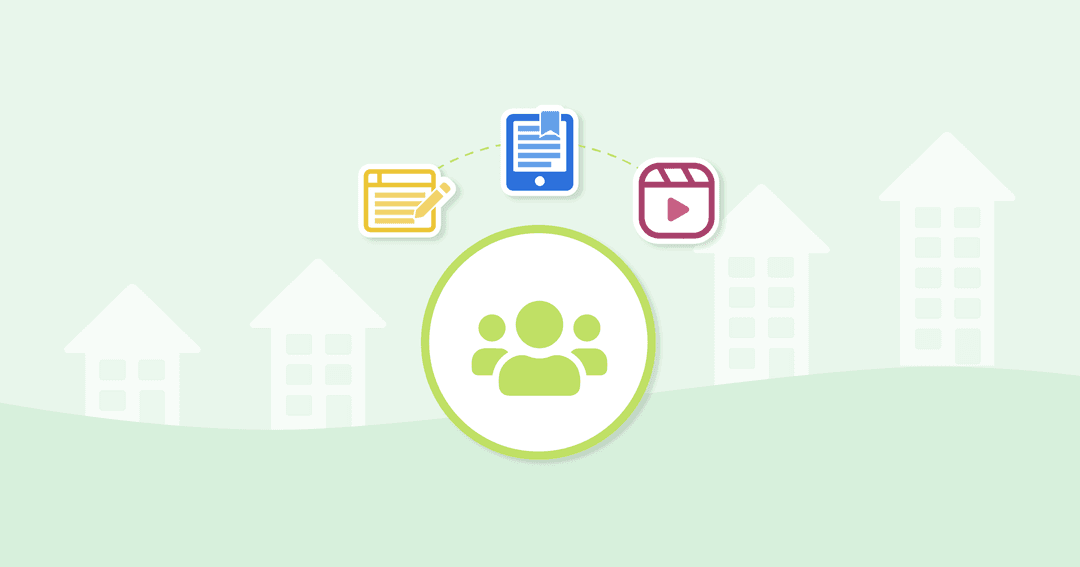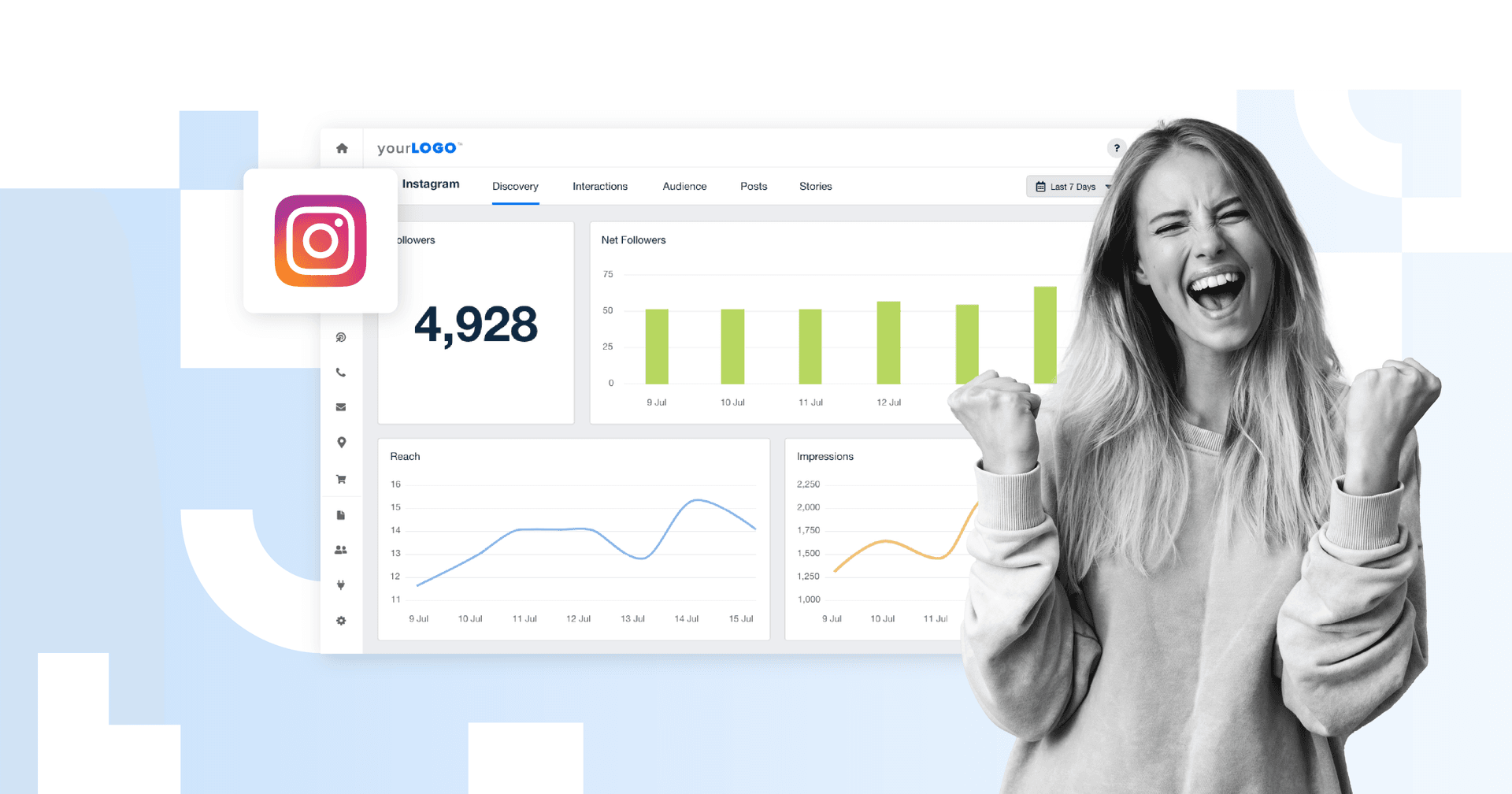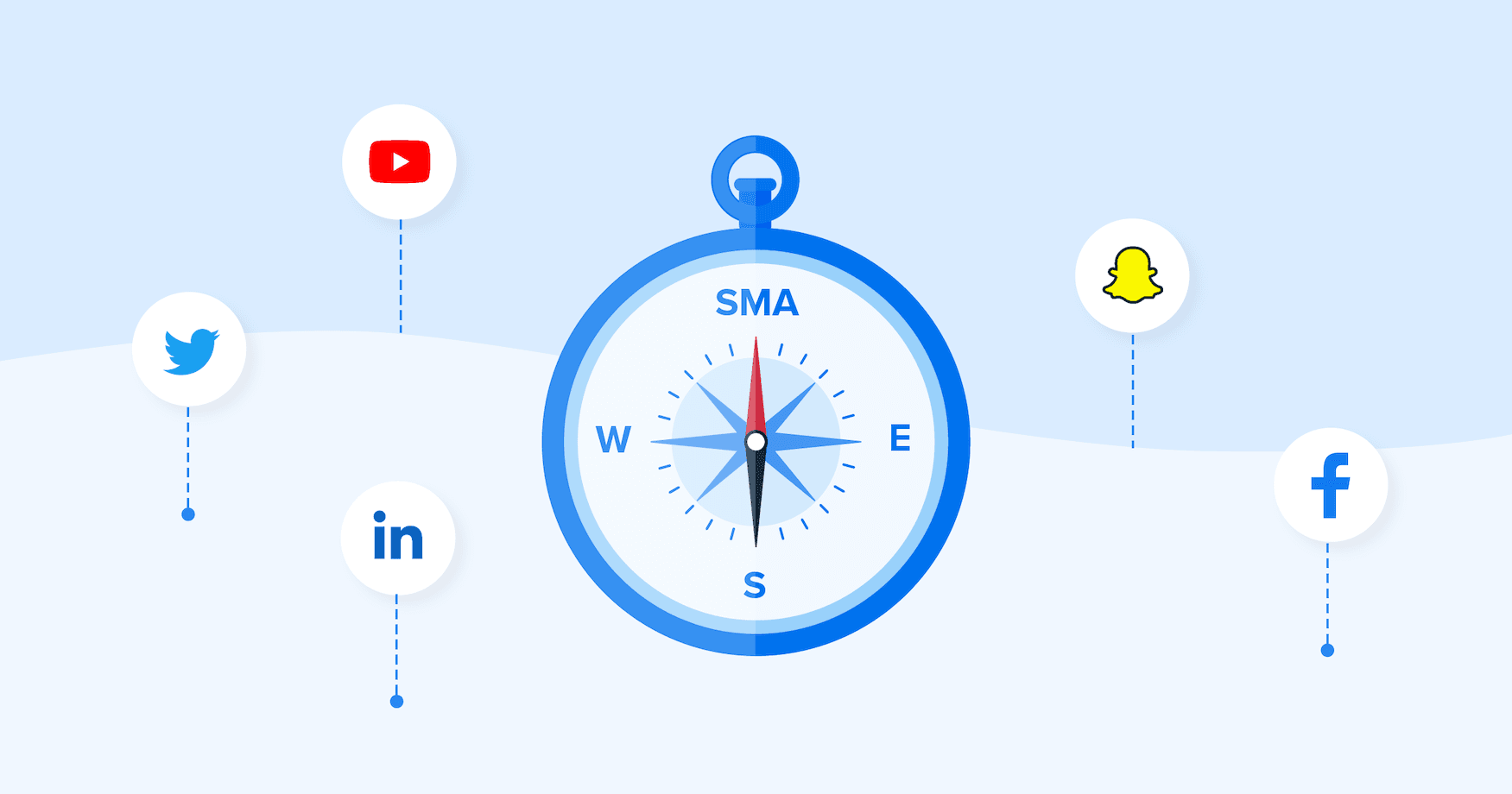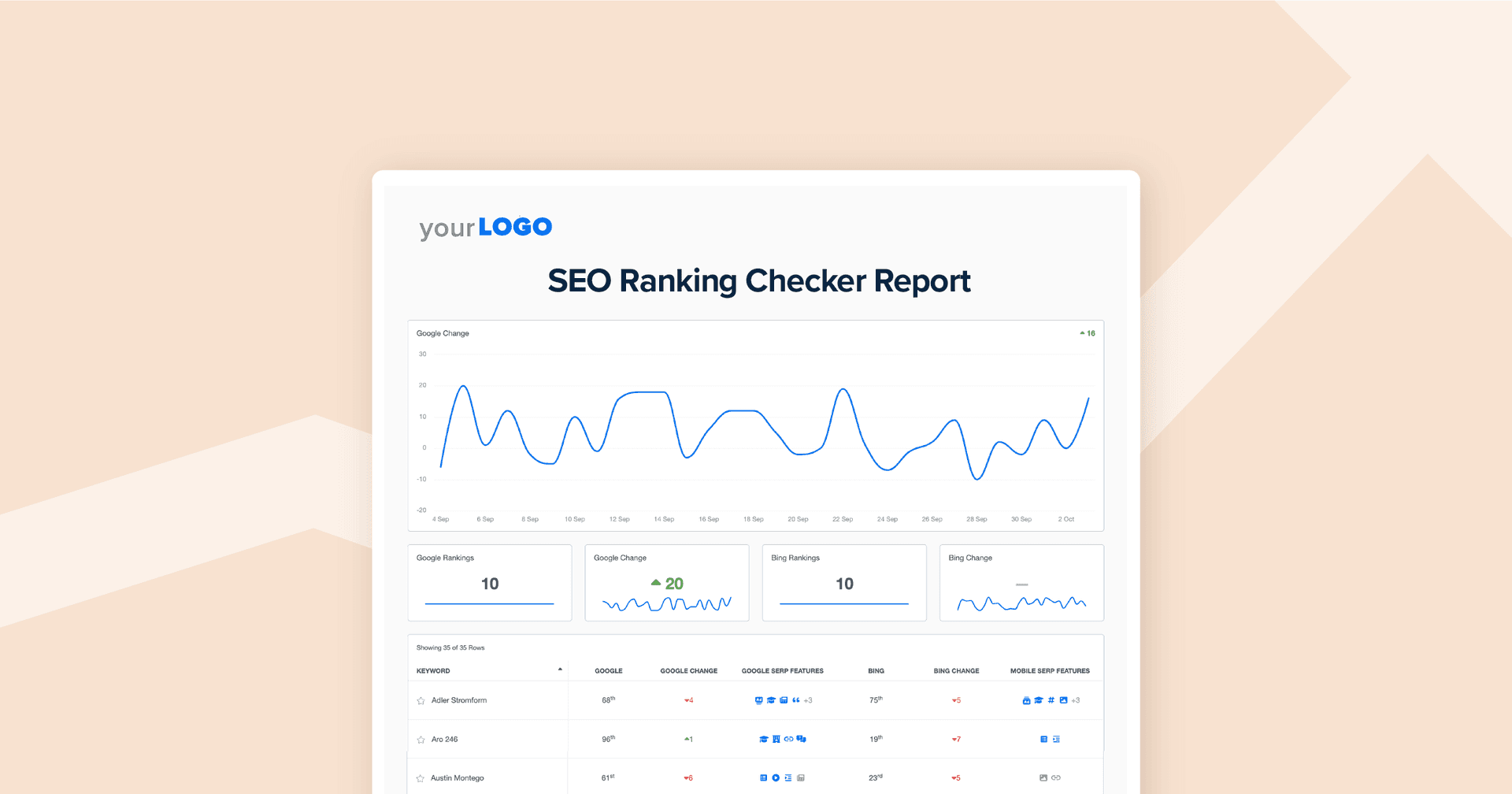Table of Contents
QUICK SUMMARY:
Real estate lead generation involves creating compelling content that attracts and qualifies potential clients. This strategy promotes a steady flow of interested buyers and sellers, providing them with valuable information to aid their decision-making process. In this article, you'll learn new insights to develop effective content that improves lead quality and quantity.
Many real estate professionals will tell you the real estate business is a numbers game. After all, closing sales for properties takes work, even after conducting hours of showings and aggressively pursuing those sales targets.
How would sales be possible with a dry sales pipeline or, worse, a clogged pipeline of unqualified leads? That’s where the real estate agency’s digital marketing team (or a real estate-focused digital marketing agency) comes into play: Keeping qualified leads flowing with lead-generating content.
In this article, you’ll learn how marketing experts create top-tier content for real estate lead generation to help agents meet their monthly property quotas—and keep them coming back for more.
What Roadblocks Do (Almost) Qualified Leads in Real Estate Have?
Real estate agents don’t want to waste time with calls from non-qualified leads. High-quality leads come from the content their team is putting out there—content that reiterates the real estate agency’s authority.
Some leads may approach agents with all the boxes ticked off. Pre-qualified? Check. Downpayment? Check. Steady employment? Also, check.
But what about the potential leads on the edge of conversion but facing some roadblocks? It may require a bit of extra digging, but it’s also a goldmine of insights if you carefully examine the situation.
First things first: Understand a potential homebuyer or homeowner’s unique challenges and create content addressing those concerns.
That way, the brand’s real estate services become top-of-mind when serious prospects are ready to make their property dreams come true. Here are a few common scenarios and solutions to incorporate in your content strategy and generate more leads.
1. Getting Lost in the Property Acquisition Process
Purchasing real estate isn’t comparable to just walking into a store and buying an item on sale. It often involves life savings, thorough decision-making, putting finances in place, and searching for the best deal possible. Plus, there's a significant emotional component.
Because the process is so intricate (and complex), it’s easy for real estate leads to get lost somewhere along the way. Perhaps this happened during the mortgage pre-approval qualification process or while trying to understand area-specific regulations.
Whatever the case, it’s an opportunity for real estate agents and their teams to create valuable content that attracts high-intent leads and moves them further along the process. Consider:
Reiterating your agency’s impressive track record through quantifiable metrics on your real estate website and social media pages, such as successfully closing over 1,000 property sales or guiding over 5,000 homebuyers through pre-qualification.
Addressing common hurdles and confusing elements of the property acquisition process through an FAQs video or blog series.
Sharing links that clients may be searching for, such as reputable credit check agencies and contacts at lending institutions.
That way, real estate agents soothe prospects’ nerves, become top-of-mind in the real estate market, and generate leads to secure meaningful business.
Agency Tip: Don't just talk about the numbers; address the emotional component of home buying in your content. Most real estate buyers are not just looking for a house. They are looking for a home.
2. Having Almost All Checkmarks Ticked But Missing an Important Part
While there are some non-negotiable steps in the property acquisition process (such as a good credit score), real estate agents may have negotiating power or wiggle room to help close a deal.
For example, take a prospect seriously interested but short on the downpayment for their first home. A realtor may work out a more favorable rate with the property seller or developer, which has a ripple effect on financing and the prospect’s possibility of purchasing.
This ability to negotiate and keep prospects’ best interests in mind is a goldmine for real estate lead generation content. Consider:
Creating video content that outlines how an agent negotiated on behalf of a purchaser and led them to success.
Collaborating with a property owner or developer on a co-branded promotional graphic that covers closing costs, legal fees, or any other incentive to fill that missing checkmark gap.
Creating a downloadable checklist of must-knows when purchasing property (such as refinancing options, pre-qualification steps, required savings, and property-associated costs to look out for).
Building a mortgage calculator and adding it to the real estate website.
Agency Tip: If you’re a real estate marketing expert or a marketing agency working with realtors, spend some 1-on-1 time with real estate agents to dig into the specific stumbling blocks homebuyers encounter in their area. These will help identify potential content ideas to convert leads.
3. Not Having the Right Contacts
Say one of your real estate agents comes across a lead interested in purchasing land may need complete plans to qualify for the purchase or ensure that what they want to build will fit within the property limits.
Alternatively, a property seller may need a top-of-the-line property valuator to determine a final selling price that is competitive in the real estate market without lowballing. Because the property is a significant investment and the stakes are high, votes of confidence in reputable contacts are critical.
A real estate agency has the opportunity to step in and fill that gap. The real estate industry is highly relationship-based, and it pays off when agents know the right people. Attract qualified leads by:
Reinforcing the value of the realtor or the agency’s expansive network and range of contacts through conversational video content and even social media captions.
Capitalizing on collaborative ventures with other industry peers, such as webinars, panel discussions, and livestream videos.
Brand the real estate agency as a “one-stop” real estate authority that knows the right people and is in a position to share valuable connections.
Agency Tip: Consider having agents’ close contacts create content based on their expertise, such as home inspections, surveys, building permits, closing costs, etc. This will highlight that the realtor knows the right people to ensure the property purchase goes smoothly.
Types of Real Estate Lead Generation Content for Agents
Are you stuck on what type of real estate lead-generation content to create? Here are a few ideas to get the ball rolling.
Property Listings and Real Estate Ads
Property listings and ads are essential to get ahead in the real estate industry. Ensure you include highly visual listings on the agency’s website, social media pages, and related real estate marketing collateral.
Here are the must-haves for a stellar property listing:
High-resolution photos or videos of the property façade, rooms, and exterior areas (such as a backyard or patio).
Attractive descriptions of the location, surrounding areas, and other appealing selling points (such as a swimming pool, fireplace, or wrap-around balcony).
Concise summaries of the number of rooms and square footage.
Property price and maintenance fees (if applicable).
The real estate agent’s contact information.
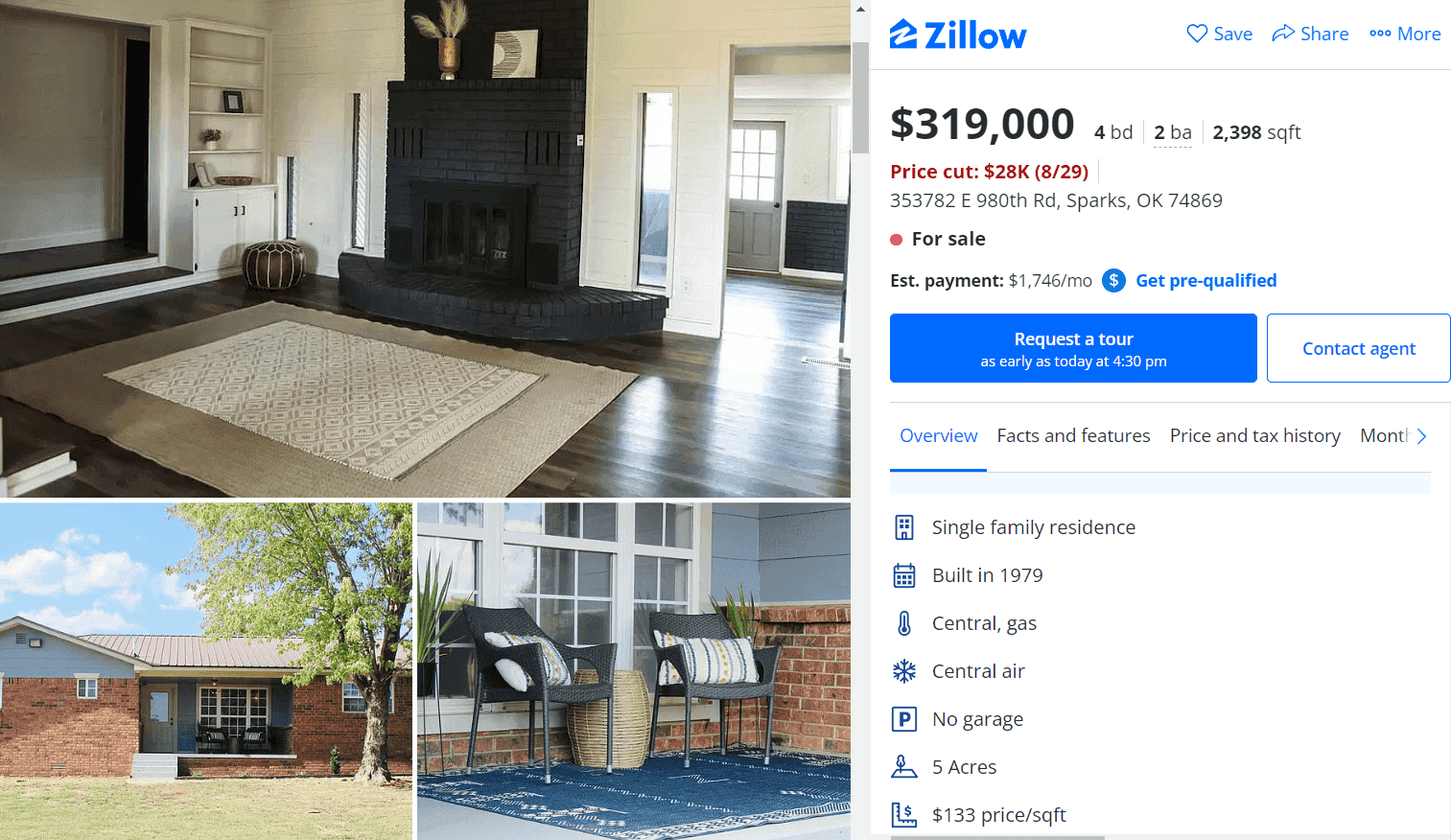
Serious real estate clients are also likely to visit reputable websites specializing in property listings (for example, Zillow, Realtor.com, and Trulia). Use internal and external property listings to get the most from a real estate lead-generating content strategy.
Videos and Reels
Create content that’s as dynamic as the real estate industry. Videos and Reels are fun ways to increase brand visibility, share key property insights, and create a recognizable brand aesthetic. A few ideas include:
A time-lapse walkthrough of a property for sale.
Other selling points such as surrounding areas, notable landmarks, nearby amenities, and views.
An education series to offer support at various stages, such as “What To Expect After You’ve Signed a Sale Agreement” and “How To Calculate Closing Costs.”
Personable content such as “A Day in the Life of a Licensed Real Estate Agent” and “What I Love About Being a Real Estate Agent”.
Client testimonials and relatable stories of happy homeowners.
Top properties in a particular area.
Sold properties with eye-catching features that prospective buyers desire.
Long-Form Blogs
Excellent written content is another way to engage an audience and build credibility through reputable backlinks.
Coupled with a call to action (such as a “Call Now” button), lead-generating, long-form blog content ideas include:
Easily digestible tips on relevant topics such as “Buying Your First Home” or “How to Negotiate a Property Price”.
Real-life interviews and insights from relevant real estate buyer personas such as real estate investors, homebuyers, and real estate flippers.
Types of properties offered such as luxury, budget-friendly, seafront, and other categorizable product offerings.
Lists of properties grouped by frequently sought-after features such as pet-friendly or gated.
Infographics
Infographics are another authoritative form of content that effectively displays an agent's statistics, insights, and observations.
Infographics reiterate expertise and solidify brand authority and years of experience (which high-intent leads are certainly after). Use infographics with graphs, percentages, and other engaging insights to showcase:
Current and upcoming industry trends.
Property trends across homebuyers and investors.
Survey feedback on insightful topics such as most commonly sought-after property features, homebuyer opinions, and experiences with the property investment process.
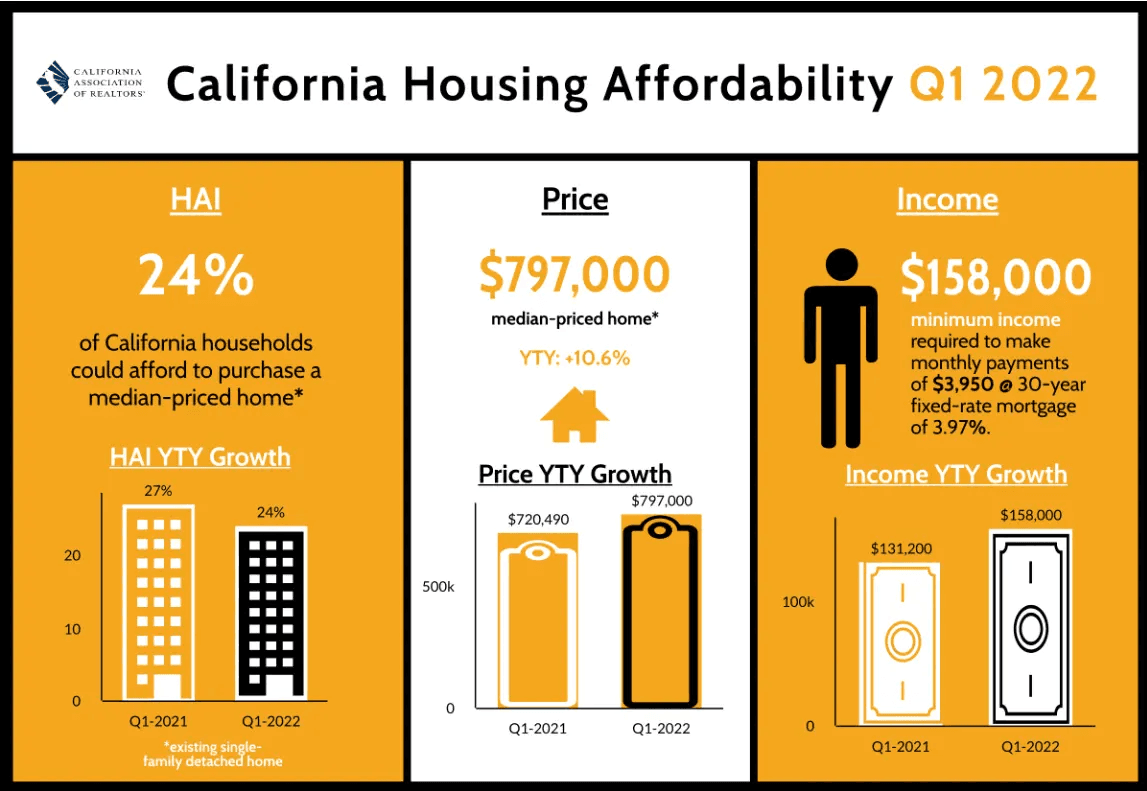
Ebooks
For seasoned real estate agencies, consider eBooks to summarize long-form educational material and better reach those high-intent leads looking for reputable insights. Gate content using lead capture forms to find and gather qualified leads.
A few ideas include topics such as:
Real Estate Investment 101
X Homebuying Tips from a Real Estate Agent
How To Get Started With Real Estate Flipping
How To Create Generational Wealth Through Real Estate
Email Marketing Campaigns
Email marketing unlocks doors to potential homebuyers, nurturing them from initial curiosity to the final handshake. Crafting an email marketing campaign that captivates, informs, and engages is essential for real estate professionals aiming to expand their client base.
Here are a few ways to leverage email marketing:
Build a targeted email list that includes contacts gathered from website sign-ups, open house registrations, and social media inquiries.
Each email should offer something beneficial to the target audience, whether it's market insights, tips for first-time homebuyers, or exclusive sneak peeks at new listings.
Craft a visually appealing newsletter to captivate subscribers, incorporating high-quality images of new listings, before-and-after shots of renovations, or vibrant community events.
Include clear, compelling calls to action guiding leads through the sales funnel, moving them closer to making a decision.
A/B test different subject lines, email designs, and CTAs to get valuable insights into what resonates with the audience.
Agency Tip: Regular communication keeps a brand top-of-mind, but bombarding inboxes is a surefire way to lose subscribers. Find the right balance and adjust your strategy based on feedback and engagement metrics to ensure your email marketing remains relevant and effective.
Social Media Polls
Polls are an interactive, visual way to keep leads engaged and showcase the lighter side of real estate (while also gaining valuable feedback), such as:
“This or That: Home Edition”
“Pick Your Favorite Furniture Piece!”
“What Color Scheme Would You Go With?”
“Pick Your Favorite Backyard Décor”
“What’s Your Design Aesthetic–Vintage or Contemporary?”
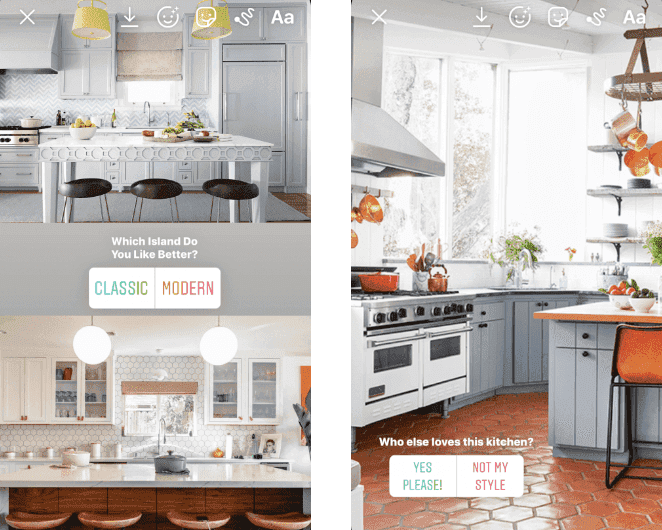
While polls aren’t necessarily as in-depth as other forms of content, they build a real estate agency’s brand personality and showcase authority in a more personable way.
Agency Tip: Ensure agents get the most traction from lead generation content by including properly highlighted calls-to-action, social media handles, Messenger boxes/icons, and a highly visible NAP (name, address, and phone number) profile where applicable.
How To Create Lead-Generating Real Estate Content
There are a few essential considerations when developing a real estate marketing plan, especially to draw in high-intent, qualified leads. Here are a few tips to consider.
Develop Content for Every Stage of the Real Estate Sales Cycle
Real estate is a dynamic industry, and an agent will likely come across prospective clients in the buyer journey stages for extended periods compared to other sectors.
This is because buying a property is a financial and highly emotional purchase tied to key experiences such as family memories, a sense of ownership, and legacy. As a result, more time is expended at each phase. Even the property acquisition process can take weeks or even months.
While an agent may want to attract only qualified leads, remember that leads during any phase of the buyer’s journey can make a 180-degree change within weeks or even years. So, creating content for each dynamic stage of the buyer’s journey is the best approach to adopt for a promising outcome.
Here are some tips for creating content to generate leads at each real estate buyer’s journey stage.
Awareness Phase
Maximize content at the awareness phase by including introductory details such as name, property specialization (e.g., luxury properties), and short points on expertise/experience. Viewers may not necessarily be on the market for a property at this point.
However, you want to create content that keeps the real estate brand top-of-mind to increase the possibility of leading to word-of-mouth referrals. It will also influence the likelihood of a prospect reaching out in the event they’re ready to invest in property at a later stage.
The more information a real estate agent provides about a prospective purchase, the more likely a buyer—or seller—is to trust that agent when they are ready.
For example, consider creating content around the following Top of Funnel Topics:
Local Guides To Shopping, Schools, Restaurants, and Neighborhoods
How to Get Ready to Buy Your First Home
What I Wish I Knew When I Bought My First Home
How To Save for Property Investment
Consideration Phase
At this point, a prospective buyer is shopping around and actively exploring other options. Create content that differentiates the brand from the competition, which includes:
What sets the realtor or real estate agency apart from other agents or brokers
More in-depth overviews of properties emphasizing key selling points
Educational content about the real estate buying and selling process, such as closing costs, the mortgage process, or necessary steps toward homeownership
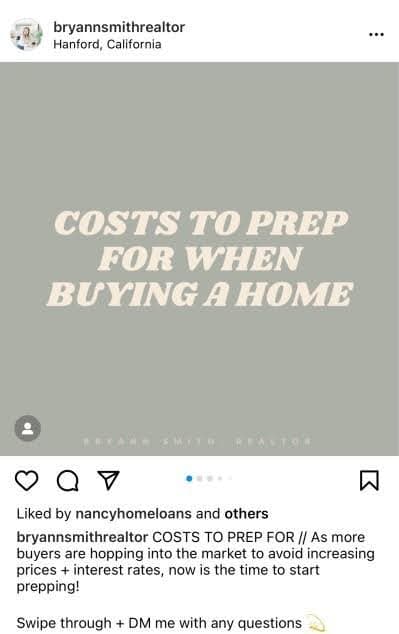
Conversion Phase
Prospects at this stage have already browsed listings in a particular neighborhood or even did an online property tour. Perhaps they’ve visited an open house (or two) and had extensive discussions with a co-purchaser, such as a partner or a spouse. They’re ready to mash the gas on a property sale, but not without some expert guidance.
It’s a no-brainer: A real estate agent would want high-ticket, golden leads to book a tour or procure their services (since there’s strong purchase intent). Targeted content must quell nerves and anxiety since it’s a huge life step to embark on.
Lead-generating content at the conversion phase should:
Reiterate the agent’s value proposition by focusing on years of experience and areas of expertise.
Emphasize relationship building and an agent or agency’s expansive network of other key real estate professionals, such as mortgage officers, architects, and insurance agents.
Include client testimonials to help soothe nerves and anxiety about the property acquisition process.
Reinforce that the agent will walk a prospect through closing the sale and every step needed in property acquisition.
Agency Tip: Ensure that real estate agents have an efficient data capture and follow-up process. It won’t make sense for your real estate agent or agency to run an elaborate campaign only to find out they lost leads along the way because of a gap in the system.
Brand Loyalty
After the conversion phase, it’s easy to lose sight of how valuable brand loyalists are for future real estate purchases. Tap into this potential by creating content exclusively for past clients of the real estate brand. Some possible content ideas include:
Targeted offers and incentives (e.g., a referral fee).
Exclusive “first-look” access to private events and showings (e.g., a preferential showing of a high-potential investment property).
Social media posts that express appreciation for past purchasers.
This keeps a real estate agent a top-of-mind option for future property purchases and increases the chances of getting referrals. It also fosters a positive brand image and shows that the realtor truly cares—even after a property purchase.
Use High-Quality Imagery to Showcase Real Estate
High-quality imagery is non-negotiable. For property, in particular, showcase all angles, rooms, and surrounding areas. Virtual tours are a vital option to enhance the online viewing experience.
Drone footage provides stunning aerial views and shows what’s in the surrounding areas (such as amenities, entertainment, transportation, and other key selling points).
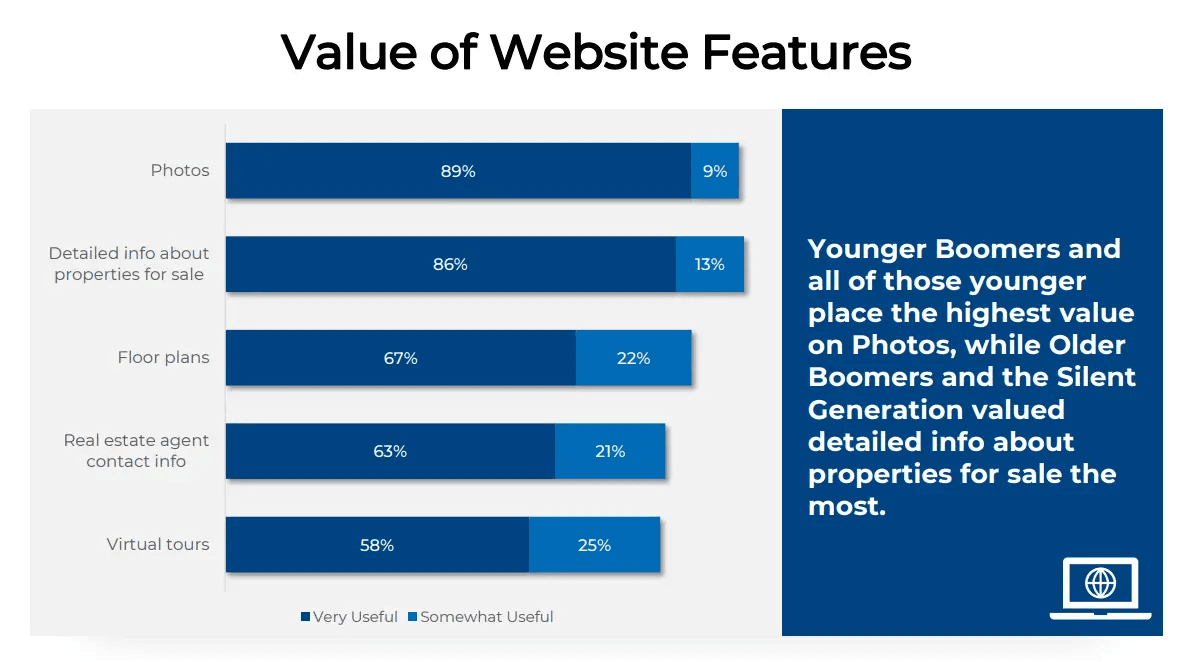
Agency Tip: Incorporate a “SOLD” banner across property listings that are now off the real estate market. Doing this creates visual interest, shows your client’s selling capability, and creates a perception of property demand. Real estate agents should also have images highlighting significant property sales to their target audience.
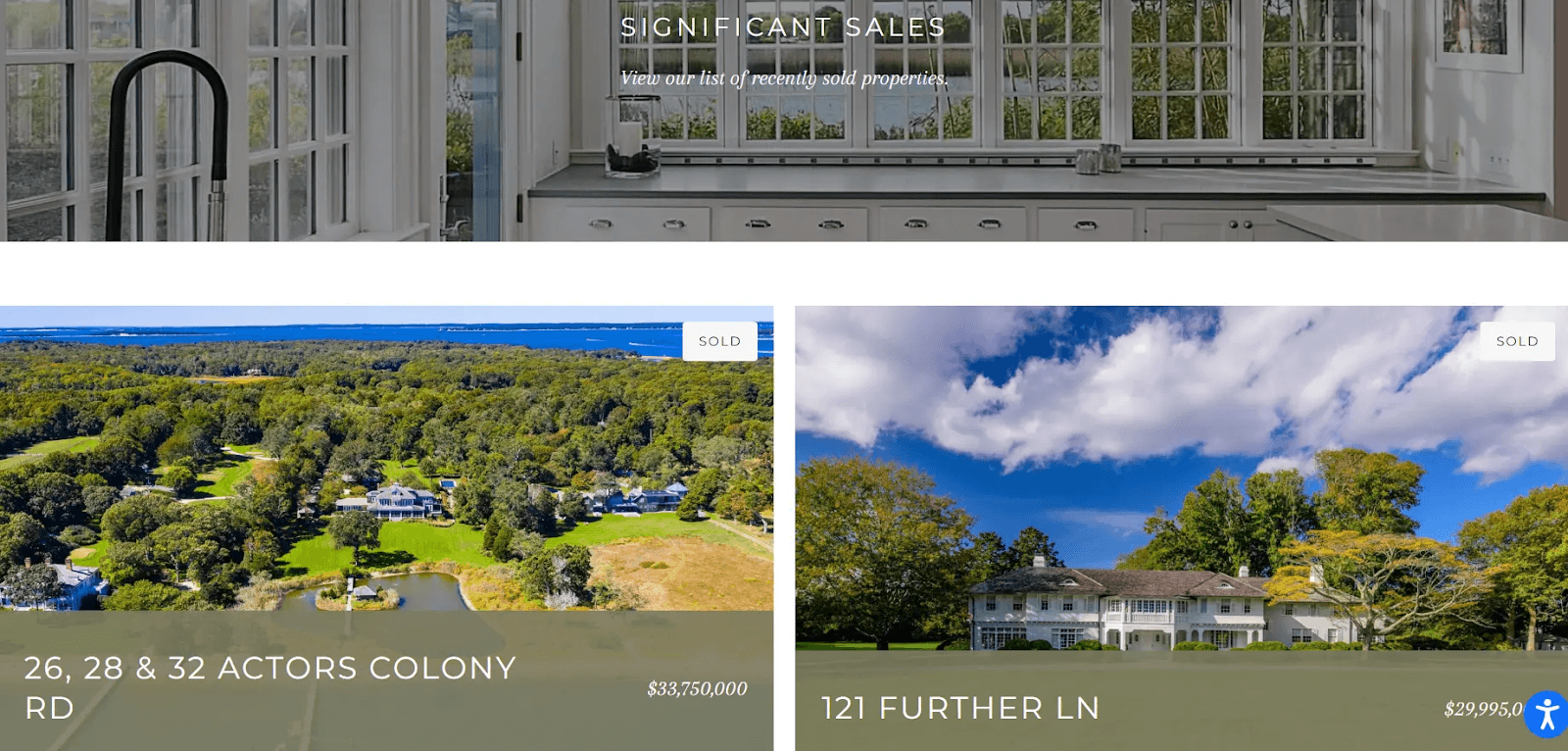
Remember That a Real Estate Agent Is a Personal Brand
Aside from dollars and cents, the real estate industry heavily depends on relationship-building and trust. Because of this, real estate agents need to craft a personal brand that’s relatable, humanized, and trustworthy.
An agent is a personal brand—there’s no way around it.
To foster a sense of trust and connection, don’t be afraid to generate content that’s a bit more informal and personal. Prospective homebuyers want to work with a real estate agent who is not only competent but also trustworthy.
Build this brand personality by encouraging agents to post occasionally about their day-to-day activities, a fun day on the go, or even fun tidbits about their interests outside of real estate.
Other Factors To Consider
Generating leads is paramount for any real estate professional aiming to become a market leader. By leveraging real estate lead generation services, agents secure exclusive leads that set them apart from competitors.
A robust real estate lead generation strategy will significantly increase the volume of new leads. This involves traditional methods like open houses, cold calling, and digital tactics such as targeted Google Ads, social media ads, and a strong presence on real estate websites.
Building relationships with local businesses and real estate investors is a game-changer for those looking to attract leads and nurture them effectively. Licensed real estate agents must focus on real estate lead generation strategies that generate high-quality leads and nurture leads through the sales funnel, ensuring they convert into new clients.
A lead generation platform streamlines this process, offering guaranteed leads and helping agents measure lead quality more effectively. The goal is to generate real estate leads that are likely to convert, whether they are real estate buyers or sellers.
Impress clients and save hours with custom, automated reporting.
Join 7,000+ agencies that create reports in minutes instead of hours using AgencyAnalytics. Get started for free. No credit card required.
Generating Real Estate Leads Through Well-Planned Content
Real estate lead generation is built on trust, networking, and high-value investments. Ensuring a steady stream of leads is an ongoing exercise that must be tweaked, monitored, and tracked consistently.
After you’ve created that engaging content, real estate agents will want to see tangible results, such as the number of leads coming in per month. How will you manage multiple real estate lead-generation efforts across different agents as you begin to scale?
The answer is simple: automated reporting. With a reporting solution like AgencyAnalytics, it’s easy to keep track of lead-generating efforts through KPI reports, Google Analytics, and so much more.
Create a custom dashboard that suits the specific campaign needs. From SEO metrics (Search Engine Optimization) to monitoring keyword rankings, staying on top of the real estate game is just a click away.
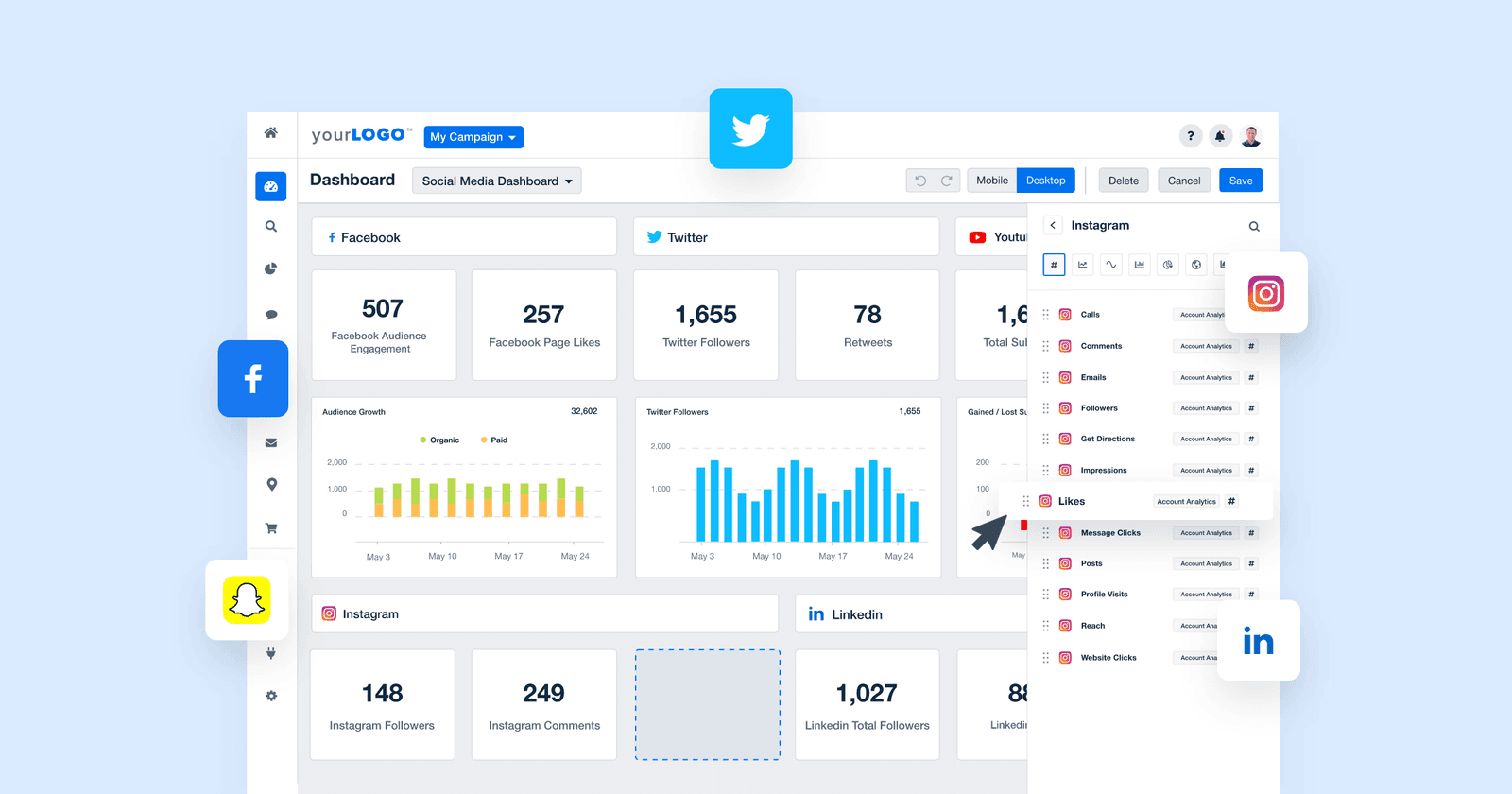
Ready to impress your clients? Save time and create customizable white-labeled reports with AgencyAnalytics–try it risk-free for 14 days.

Written by
Faryal Khan is a multidisciplinary creative with 10+ years of experience in marketing and communications. Drawing on her background in statistics and psychology, she fuses storytelling with data to craft narratives that both inform and inspire.
Read more posts by Faryal KhanSee how 7,000+ marketing agencies help clients win
Free 14-day trial. No credit card required.



